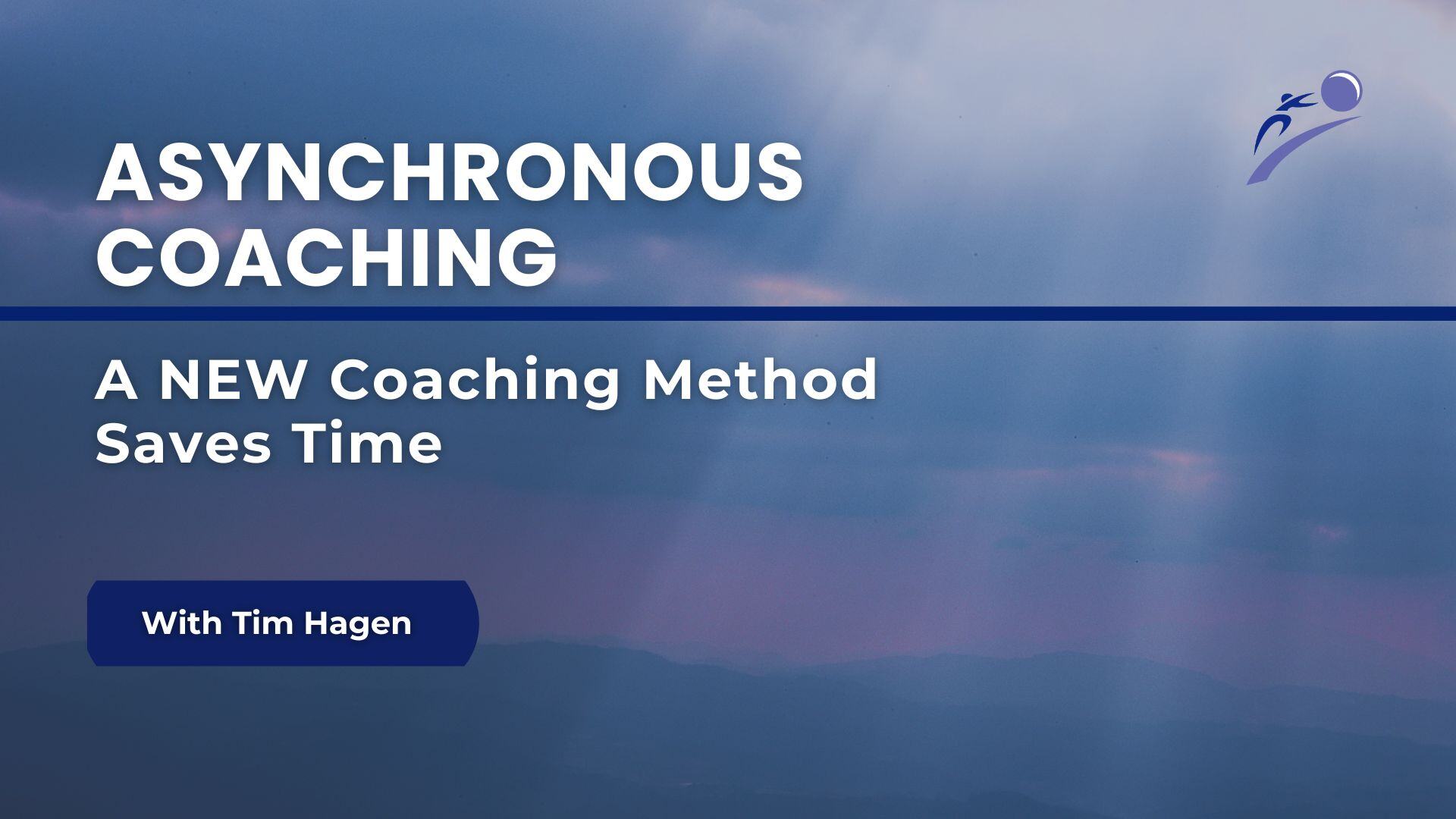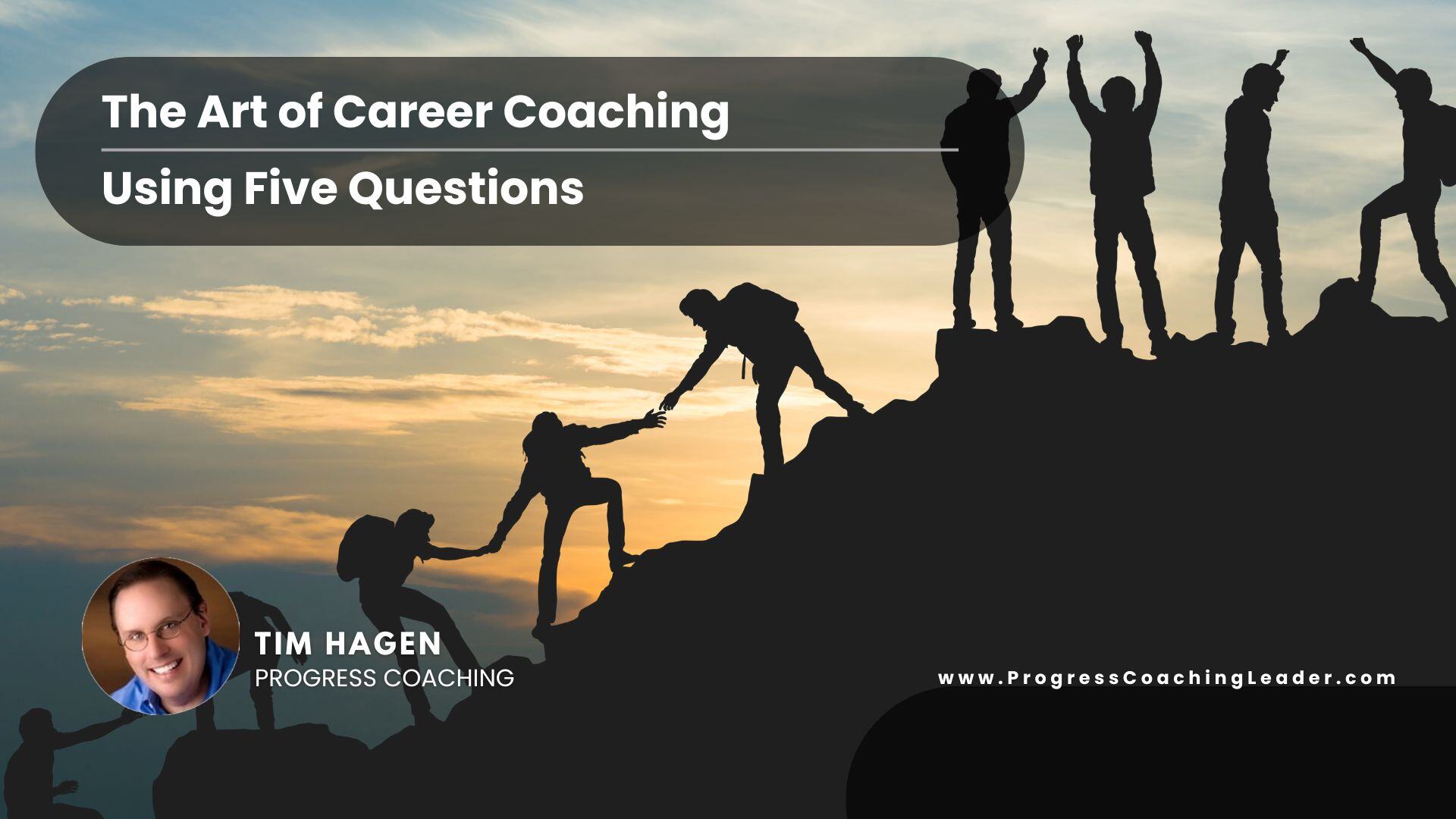Starting a coaching relationship is not always easy to do and one of the things we teach in the progress coaching training system is something we call the awareness stage. The awareness stage is when we make someone aware of the opportunity to improve but the language and approach we use is as critical as anything. The goal of this stage is not to convince somebody that they have to improve, rather it's to make them aware of the opportunity, seek their emotional commitment to the area of opportunity, and ultimately establish a cadence associated with getting together.
 That first conversation really sets the tone and the language we use is critical. So often when we practice or we see someone perform the language usually goes something like this: "Bob, one of the things I thought you did really well was XYZ, but here are a few areas where I feel like you need to improve ...". For whatever reason we tend to provide feedback that is more on the critical side of the feedback spectrum than the positive side. I always go back to something we teach and it is so fundamental and something we live by At Progress Coaching: The goal of feedback is never just to give feedback, rather the goal of feedback is to give it so someone accepts it and strategically utilizes it. This could never be more important than starting a coaching relationship at the awareness stage.
That first conversation really sets the tone and the language we use is critical. So often when we practice or we see someone perform the language usually goes something like this: "Bob, one of the things I thought you did really well was XYZ, but here are a few areas where I feel like you need to improve ...". For whatever reason we tend to provide feedback that is more on the critical side of the feedback spectrum than the positive side. I always go back to something we teach and it is so fundamental and something we live by At Progress Coaching: The goal of feedback is never just to give feedback, rather the goal of feedback is to give it so someone accepts it and strategically utilizes it. This could never be more important than starting a coaching relationship at the awareness stage.
Here are some tips and strategies along with verbiage that will assist you in starting a coaching relationship positively:
- If you feel someone may be resistant use a permission-based question such as: "Bob, would you mind if I shared with you an opportunity of where we could work together to improve in the area of XYZ?" This is called a permission-based question and once permission is granted people feel little bit less defensive of what is being provided in terms of feedback or the opportunity to improve.
- The five words that should be in every coaching conversation: We - if we use the word we in our approach people will be more inclined to accept the needed change or opportunity to improve if someone travels the road with them.
- Share - share is such a friendly way to disseminate information versus typical verbiage such as what I would do if I were you or what you need to do…
- Opportunity - the opportunity is the WIIFT or what's in it for them. All too often managers will provide constructive feedback without understanding the emotional investment for the person being coached. When we use the word opportunity as it's very futuristic and positive in nature.
- Perspective - one of the reasons we suggest using the word perspective or observation is that they are neutral and all too often when we provide feedback we often bring in to our conversations emotional interpretation such as "I was frustrated when you…" Or "I was confused as to why you ...". The words perspective and observation are neutral in nature and protect the person from starting the conversation as coming off negative.
- Observation - one of the reasons we suggest using the word perspective or observation is that they are neutral and all too often when we provide feedback we often bring in to our conversations emotional interpretation such as "I was frustrated when you…" Or "I was confused as to why you ...". The words perspective and observation are neutral in nature and protect the person from starting the conversation as coming off negative.
 Here are a few examples of how to start a conversation using the five aforementioned words: "Bob, I was wondering if you'd be okay if I shared a perspective of where we have a wonderful opportunity to improve as it relates to cold calling and we could lower frustrations associated with cold calling together?".
Here are a few examples of how to start a conversation using the five aforementioned words: "Bob, I was wondering if you'd be okay if I shared a perspective of where we have a wonderful opportunity to improve as it relates to cold calling and we could lower frustrations associated with cold calling together?".
"Bob, what if we got together weekly to practice handling angry customers and we created opportunities to improve in those areas and lower some of the anxiety often associated with angry customers?"
Overall, getting a coaching relationship started is really understanding a number of things but high level we need to know where people currently see themselves and where they want to go. In addition, we need to understand those things as they relate to the job requirements of where people currently perform and where they need to perform. One of the strategies we teach that is an awesome way to start a coaching conversation is something called whiteboard coaching. This depicts a current and ideal state strategy to start a coaching relationship whether for an individual or a team. Click here for an audio overview of the strategy.
If you are interested in starting a coaching program that goes way beyond training click here to get more information on our training and support system that deals with managers real world day-to-day issues.





